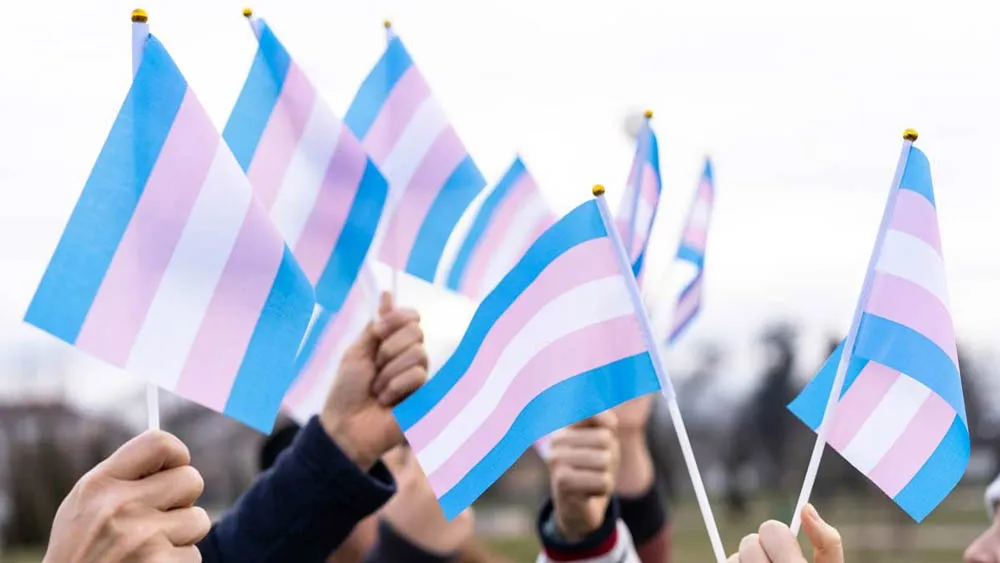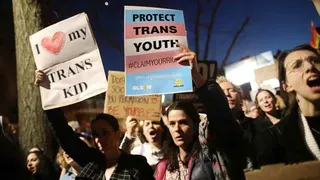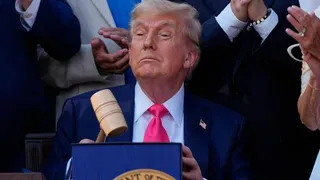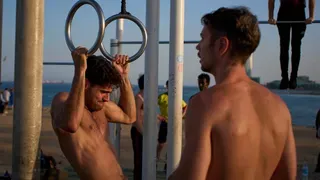November 23, 2014
Anxieties Mount as Ferguson Waits on Grand Jury
Bobby McGuire READ TIME: 3 MIN.
FERGUSON, Mo. -- Despite preparations for a weekend decision in the Ferguson shooting case, the grand jurors apparently need more time to deliberate, and the uncertainty just seemed to feed the anxiety and speculation Sunday in a city already on edge.
More than 3 1/2 months have passed since police Officer Darren Wilson, who is white, killed unarmed black 18-year-old Michael Brown after a confrontation in the middle of a street in the St. Louis suburb. The shooting triggered riots and looting, and police responded with armored vehicles and tear gas.
Many in the area thought a grand jury decision on whether to charge Wilson with a crime would be announced Sunday, based partly on a stepped-up police presence in the preceding days, including the setting up of barricades around the building where the panel was meeting.
The grand jurors met Friday but apparently didn't reach a decision, and they were widely expected to reconvene on Monday, though there was no official confirmation of that.
During church services Sunday, some pastors encouraged their flocks not to fret.
A choir sang, "We need you Lord right now" at the predominantly black Greater Grace Church in Ferguson. The pastor, Bishop L.O. Jones, referred to the pending grand jury decision briefly.
"Everybody stand to your feet and tell somebody, `Don't be afraid. God is still in control,'" Jones said as church members repeated after him.
The Rev. Freddy Clark of Shalom Church in nearby Florissant told the mostly black interdenominational congregation that "justice will be served" whichever way the decision goes, because God will take care of it.
"None of us are pleased about what happened," said parishioner James Tatum. "Whatever the verdict is, we have to understand that's the verdict."
As they wait, some people have continued daily protests, while speculation has grown that the delays are intentional.
"People feel like it's been engineered, so that the results wouldn't come out until after the election and until the weather got cold, and it would be more difficult to protest," said Susan McGraugh, supervisor of the Criminal Defense Clinic at the Saint Louis University School of Law. "It's really adding fuel to the fire."
Wilson has remained out of public view since the shooting, though CNN reported Sunday that he has met with network anchors to discuss possible interviews. Don Lemon and Anderson Cooper, both of CNN, each said on Twitter that they had met with Wilson.
St. Louis County Prosecutor Bob McCulloch had said he expected a grand jury decision by mid-to-late November. But that's not ultimately in his control.
The 12-person grand jury deliberates in secret, without McCulloch, and sets its own schedule depending upon when the members are available.
It's not uncommon for deliberations to take a while in complex cases when, such as in the Brown shooting, self-defense is alleged or there are two widely conflicting versions of events, said Cole County Prosecutor Mark Richardson, who is not involved in the Ferguson case.
Downtown STL Inc., a St. Louis civic group that promotes downtown businesses, told members in an email Saturday that the grand jury will reconvene Monday to continue deliberating. The email did not explain how the group knew that, and McCulloch's office has not commented on the grand jury's schedule.
If jurors meet Monday, there is no guarantee they will reach a decision that day, or even this week.
"In the course of their deliberations, if one grand juror convinces the others that `Look, we need to hear from an additional witness,' and they all agree, the prosecutor's got a duty to bring that witness in," Richardson said.
Benjamin Crump, an attorney for Brown's family, said they are frustrated the prosecutor didn't charge Wilson himself, or at least suggest a charge to grand jurors.
As it is, "you don't have any direction, you're just putting all the evidence out there and you're going to let them figure it out and they can make up their own minds," Crump said. "You know, it just boggles the mind why he thinks this is fair."
When the panel reaches a decision, it will be up to McCulloch to publicize it.
Sunday would have been an opportune time to minimize disruptions from protests, since schools and governments are planning on only a partial work week because of Thanksgiving, said Peter Joy, a law professor at Washington University in St. Louis. He said Monday or Tuesday would still make sense.
But "my belief is that with the holiday, releasing it on Wednesday, Thursday or Friday would produce a negative reaction," Joy said.







